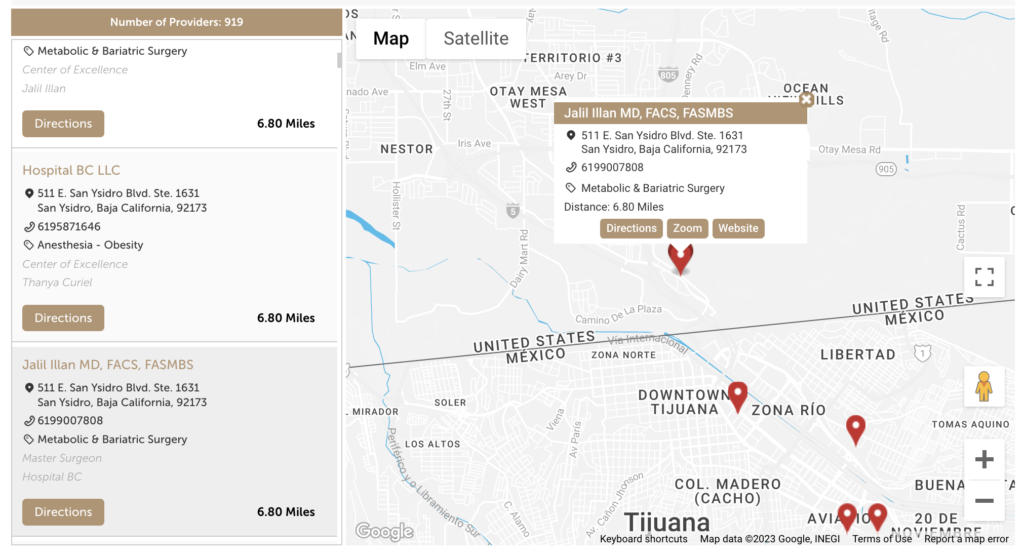Gastric Bypass is a standard weight loss procedure in which the stomach is divided into two sections, a small upper pouch and a larger lower section. The small intestine is then rerouted to connect to both the upper and lower sections of the stomach. This significantly reduces the amount of food and calories consumed, leading to weight loss.
The cost of this surgery differs in the US, Mexico, and other countries. An all-inclusive weight loss surgery package will come with the cost of the surgery, hospital stay, and all post-operative appointments.
Read more: The Cost of Gastric Bypass in the US vs. Mexico.
As with any weight loss surgery, individual results will vary. However, most patients expect to lose 50-70% of their excess body weight within the first two years after surgery. Here is a timeline of expected weight loss after gastric bypass surgery:
1) In the first month after surgery, patients can expect to lose 10-15% of their excess body weight.
2) Within 3-6 months, patients will have lost 20-30% of their excess body weight.
3) Patients will have lost 30-50% of their excess body weight at the one-year mark.
4) By the two-year mark, patients will have lost 50-70% of their excess body weight.
What Factors Affect Weight Loss After Gastric Bypass Surgery?
1. The Type of Surgery
There are two major types of gastric bypass surgery:
Roux-en-Y (RYGB) surgery is the most common type of gastric bypass. It involves creating a small stomach pouch and reconnecting it to the small intestine.
Sleeve gastrectomy (SG) is another type of weight-loss surgery. It involves removing part of the stomach to create a small, tube-shaped stomach.
An RYGB surgery is more likely to lead to significant weight loss than an SG surgery. The smaller stomach pouch created by RYGB limits the amount of food you may eat at one time. This leads to a feeling of fullness sooner and reduced hunger throughout the day.
2. The Size of the Stomach Pouch
The size of the stomach pouch during surgery will also affect weight loss. A smaller stomach pouch is associated with more significant weight loss.
3. The Length of the Small Intestine
The small intestine is the crucial part of the digestive system where most nutrients and calories from food are absorbed. Gastric bypass surgery reduces the small intestine’s length, limiting the number of calories and nutrients absorbed.
This results in weight loss because the body cannot get all the calories it needs from food. Gastric bypass surgery also alters hormones affecting hunger and fullness, reducing appetite and fewer cravings.
4. The Patient’s Age
Patients between 18-60 years old can expect to lose about 77% of their excess weight. Older patients may lose a little less because of slower metabolism.
5. The Patient’s Activity Level
More active patients will see better results, burning more calories. Sedentary people will still lose weight but may not see results as quickly.
The weight you can expect to lose after gastric bypass surgery depends on several factors. These include your starting weight, diet and exercise habits, and your body’s natural ability to lose weight. If you want to undergo a gastric bypass in Tijuana, call Dr. Jalil, an experienced weight loss surgeon who has helped many people lose weight.






